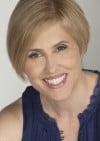book 16 of 24 books in 28 days: i could tell you stories
I've had Patricia Hampl's I Could Tell You Stories on my bookshelf for over a year. I don't know why I haven't read it until now, but if you haven't read it either, please do, and as soon as possible. Hampl sprinkles her clarifying tonic on memoir, memory, and writing
process through essays on poetry and memoir (from Whitman to Milosz to
Plath to Augustine).
It's perfect for me to read at this point in my projects–the reading project and the writing project– because she addresses many of the questions, fears, and conversations rattling around in my brain. She shares her thoughts and writing process in ways that prod me.
Hampl begins I Could Tell You Stories by asking what readers of memoir seek and find in it. Her answer: "Maybe a reader's love of memoir is less an intrusive lust for confession than a hankering for the intimacy of this first-person voice, the deeply satisfying sense of being spoken to privately. More than a story, we want a voice speaking softly, urgently, in our ear."
She writes about memory, and by extension, truth: "I am forced to admit that memory is not a warehouse of finished stories, not a gallery of framed pictures. I must admit that I invented. . . . It still comes as a shock to realize that i don't write about what I know, but in order to find out what I know."
She continues, "Memoir is the intersection of narration and reflection, of storytelling and essay writing. It can present its story and consider the meaning of the story. The first commandment of fiction–Show, Don't Tell–is not part of the memoirist's faith. Memoirists must show and tell. Memoir is a peculiarly open form, inviting broken and incomplete images, half-recollected fragments, all the mass (and mess) of detail. It offers to shape this confusion–and, in shaping, of course, it necessarily creates a work of art, not a legal document." This work of art vs. legal document distinction is one I am only now beginning to understand, now that I am about to embark on my fifth (or is it sixth?) draft and having read and discussed memoirs with a different purpose than I had a year or two ago.
On why she writes memoir, she echoes what so many memoirists mention as the pull of the past, not to luxuriate in its beauty, but to understand its suffering, : "I suppose I write memoir because of the radiance of the past–it draws me back and back to it. Not that the past is beautiful. In our communal memoir, in history, the darkness we sense is not only the dark of forgetfulness. The darkness is history's tunnel of horrors with its tableaux vivants of devastation. . . . There may be no more pressing intellectual need in our culture than for people to become sophisticated about the function of memory. The political implication of the loss of memory are obvious."
My professor told me that I should be prepared to talk about the evolution of my thesis at the beginning of Tuesday's defense. Even though my writing sample for admission to the MFA program was mostly memoir–the nonfiction pieces were the strongest I had to submit–I started the MFA with the goal of writing a novel. Hampl addresses her process of evolving into being a memoirist this way: "What bothers me about this brief history of my literary attempts is that I ended up writing memoir . . . when that was the last thing I wanted to do. Wasn't it? . . . Put another way: How did I come to believe that what I knew was also what mattered? And, more to the point for the future, is it what matters? Maybe being oneself is always an acquired taste. For a writer it's a big deal to bow–or kneel or get knocked down–to the fact that you are going to write your own books and not somebody else's."
A must-read.





1 Comment
Square-Peg Karen
Oh Angela, I *knew* I knew that name – I read The Florist’s Daughter a few months ago thanks to a recommendation from my dtr. I just checked my public library and they dont have this book, but I’m heading out for it at the bookstore – this sounds SO up my alley – so much to ponder and reflect on just from the few quotes you scattered in here…
What you quoted here: “…a hankering for the intimacy of this first-person voice, the deeply satisfying sense of being spoken to privately…” blew me away – I’d never thought of it like this before, but there’s something in there about why I became a therapist — and why I’ve always loved memoir. Being heard is SO important – being seen and heard — and being able to see and hear another, such a blessing – a joy.
Different of course when you’re reading compared to when you’re with someone in real time – but sooo interesting to think about — the draw of memoir, the draw of story and first person and hearing someone’s heart stories…Ah, such a thought provoking post. Thanks!